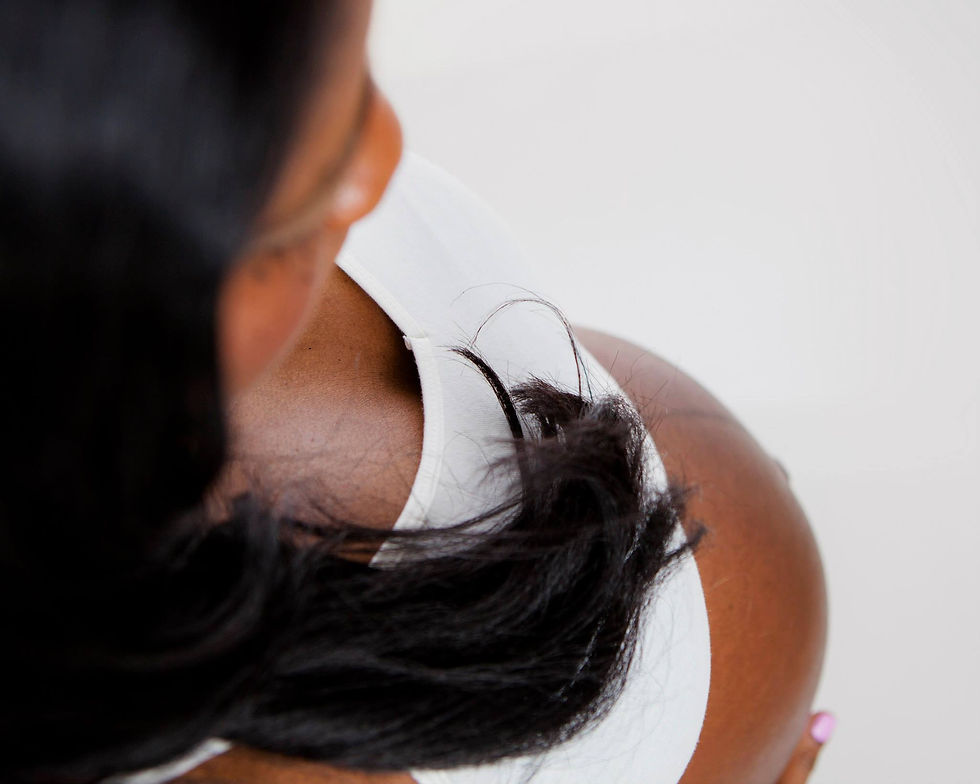Breastfeeding Basics for Moms - Your Questions Answered
- Marisol Gracia, BA, MBA, CCCE
- Aug 23, 2022
- 4 min read
We have you in mind moms and moms-to-be! It's #breastfeedingawarenessmonth and this is your go-to for all the questions you will need to know during your first or even 2nd, 3rd, and even 4th ++ time around 💕🙃🙂.

Why should I breastfeed?
BREASTMILK IS THE BEST FOOD FOR YOUR BABY.
• It has all the nutrients your baby needs for proper growth and bone development
• It may reduce the risk of ear infections and colds • It may reduce the risk of obesity, diabetes, and other diseases • It’s easier for your baby to digest • It’s always the right temperature; never too hot and never too cold
IT’S HEALTHIER FOR YOU, TOO!
PROS OF BREASTFEEDING:
• It can help you recover more quickly from childbirth • It can reduce your risk for type 2 diabetes and certain breast and ovarian cancers
• It may help you lose weight after childbirth
How often should I breastfeed my baby?
NEWBORN BABIES BREASTFEED FREQUENTLY
A newborn will feed bout 8 to 12 times in 24 hours. You should feed your baby when he or she shows signs of hunger.
SIGNS OF HUNGER:
• Fists moving to mouth • sucking on hands or fingers • smacking lips or opening mouth when lips are touched
• rooting or head turning to look for the breast • Opening and closing mouth • squirming or restless movements while asleep
Many moms think crying is the only sign that their baby is hungry, however, it’s actually a sign of distress. Hungry babies will show signs of hunger BEFORE they begin to cry. Watching for and responding early to your baby’s hunger signs may help prevent them from crying.
How does my body know how much milk to make?
Your body is wonderfully made! Did you know that as you breastfeed your baby, your body adjusts to make the right amount of milk? Putting your baby to your breast early and often will help your body keep up with your baby’s growing tummy. The more breast milk your baby drinks from you, the more milk you will produce. This is called supply and demand, and it is very important to the success of breastfeeding.
How will I know my baby is getting enough?

There are a few ways you can be assured that your baby is getting plenty of milk. One way is to count the number of wet diapers and poops. The color, texture, and frequency of baby’s poops will change as your baby grows. This chart offers a guide for the frequency and color of your baby’s daily poops and wet diapers. It is okay if your baby has more diapers than what is shown. Your baby may have more than six poops a day after the first week. After 6 weeks, there may be fewer dirty diapers.
Another way to tell if your baby is getting enough milk is if they’re gaining weight. Don’t worry if your baby loses a little weight in the first few days—that’s normal. Talk to your baby’s doctor to make sure your baby is gaining the right amount of weight.

Can I feed my baby both breast milk and formula?
Feeding your baby both breast milk and formula in the first month can decrease your milk supply. If your baby gets full with formula and does not breastfeed, your breasts will make less milk.
Why does it feel like I’m not making any milk?
The first milk new mothers produce is called colostrum. Colostrum is a sticky yellowish substance full of vitamins and minerals. It provides your baby with important immunities and nourishment. Though it may not seem like a lot, it is enough to fill your baby’s stomach in the first days.
At birth, your baby’s tummy is no bigger than a toy marble (about 1 to 2 teaspoons). By day 10, your baby’s stomach grows to the size of a ping-pong ball (about 2 ounces). Your milk supply will increase within a few days to keep up with your baby’s needs.
Why do my breasts hurt when my baby nurses?
You may feel pain if your baby is not positioned properly or not latching on correctly to breastfeed. I can help with positioning and latching. Mothers, grandmothers, sisters, other relatives, and friends who have breastfed their babies can be good sources of information, too!However, make sure you seek out experts to get individulized care.
How do I prepare to go back to work if I am breastfeeding?
If you are returning to work soon after your baby is born, it is best to make a plan about how to work and breastfeed. Find a day care center or babysitter near your job and talk about your plans to breastfeed. You can use a breast pump to collect and store milk for your baby to have while you are at work. I can help you learn about pumping and storing breast milk. You should start to pump a week before you return to work to ensure you have a good supply.
Written by our Certified Birth Doula, Childbirth Educator and Assistant Midwife, Breastfeeding Advocate and Mother of Two - Marisol Gracia, BA, MBA, CCCE. To learn more about Marisol and our team visit About our Team.
Send Marisol a message. Send a message to the general inbox.
To learn how to prepare your body for prenatal (fertility), pregnancy and postarturm stage (healing, breastfeeding, etc) with nourshiment - using FOOD AS MEDICINE with expert guidance - sign up for our

Want to work with our team at 360Girls&Women®LLC book a Discovery Call
so we can learn more about your goals and how we can work together!


References




























Comments